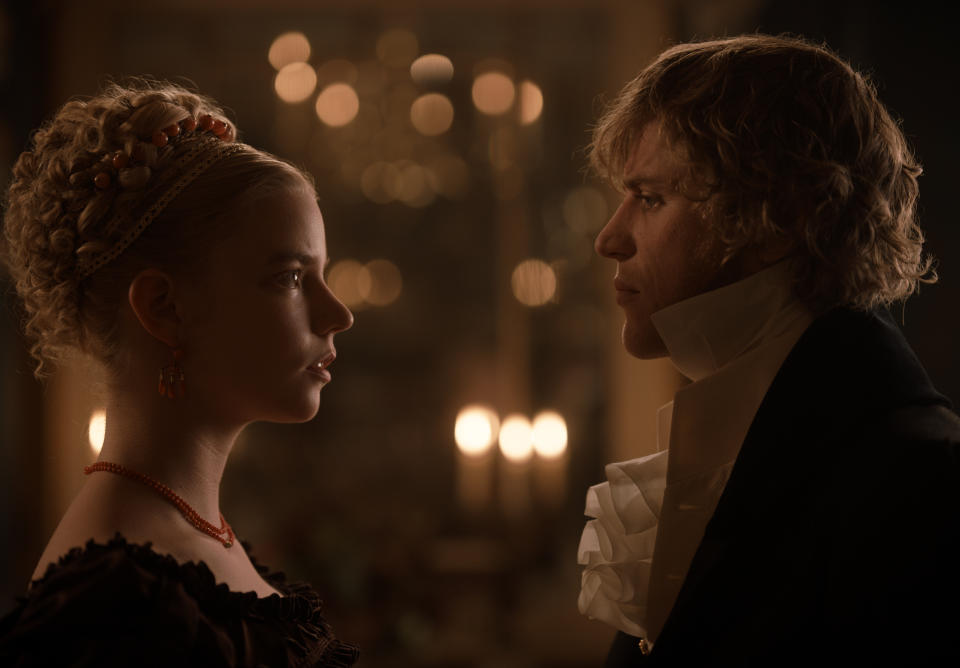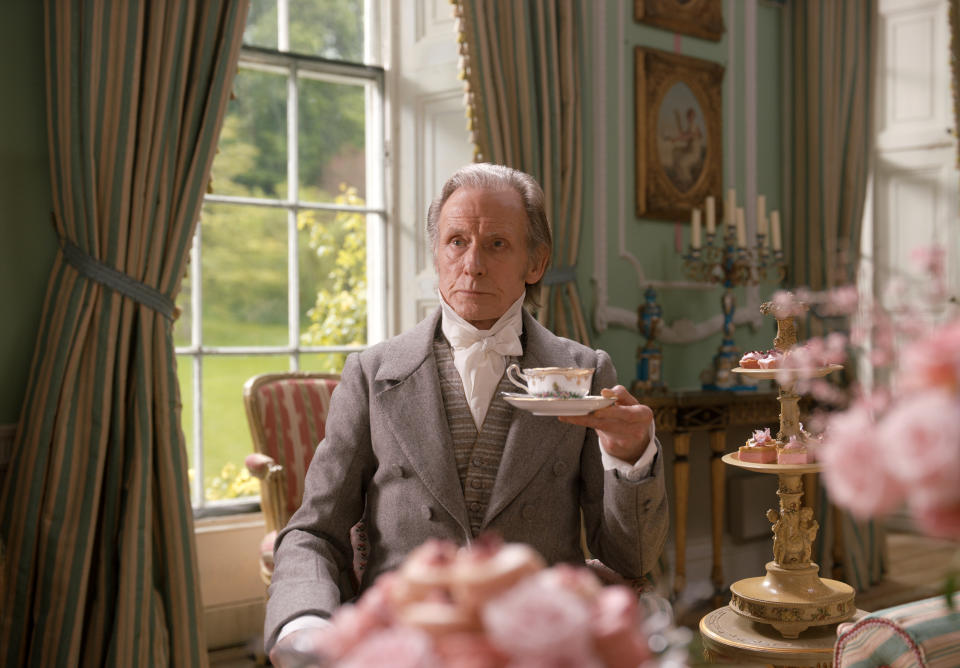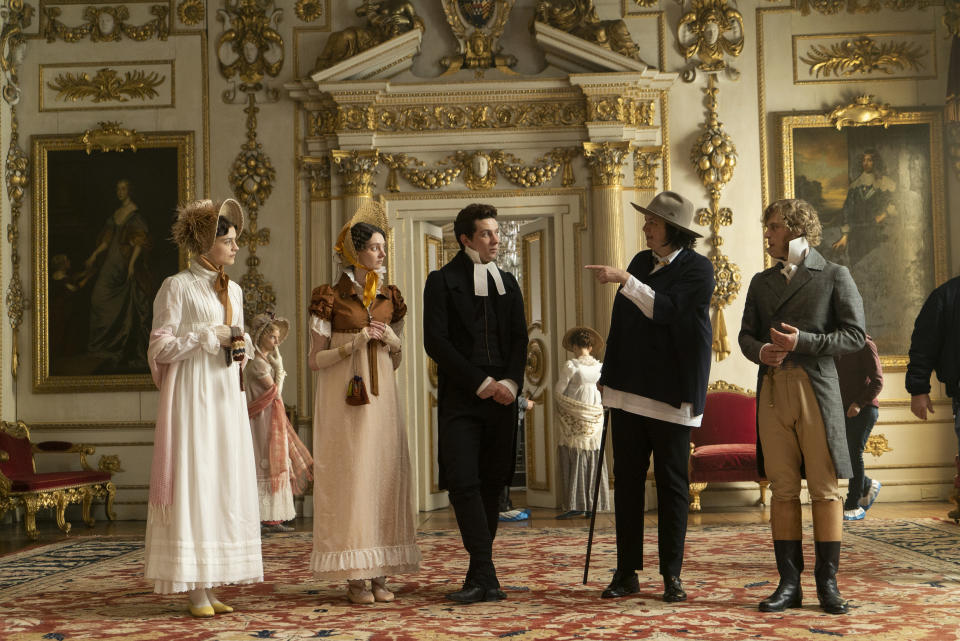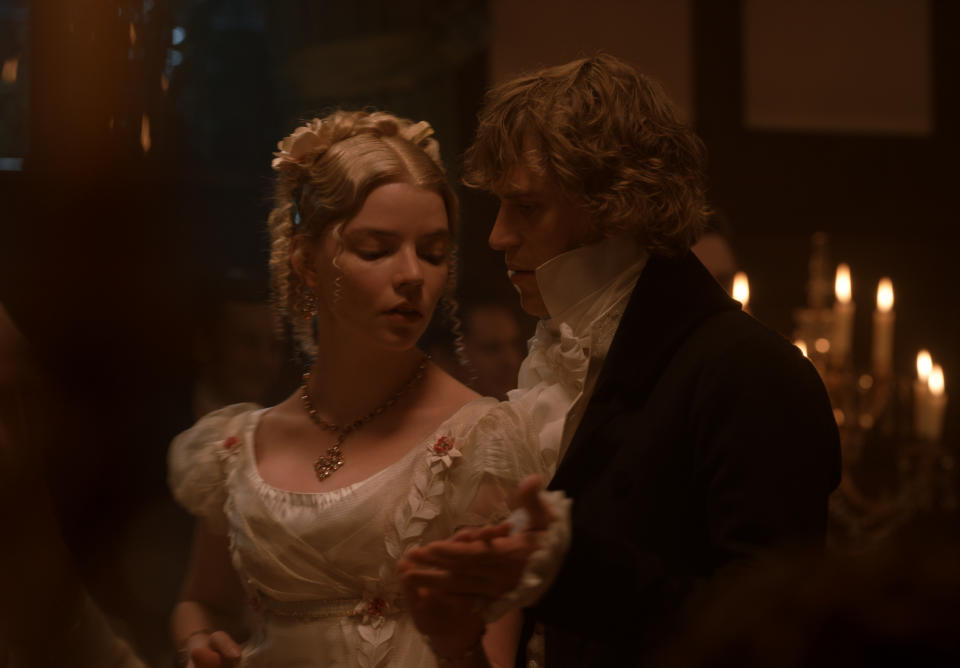The stars of 'Emma' explain the intricate details of Regency period etiquette (exclusive)
Johnny Flynn, one of the stars of Autumn de Wilde’s new adaptation of Jane Austen’s 1815 novel Emma, says learning the rules of etiquette of the period made him yearn for a return to simpler times.
The British actor, who plays the titular matchmaker’s neighbour George Knightley in the period dramedy, says he wishes we could resurrect the art of conversation that played pivotal role in English society, during the early part of the 19th century.
“[I like to bring back] the private conversations and moments that people are allowed to have in this period,” Flynn explains to Yahoo.
“Because there’s no invasion... outside communication, phones, and all that stuff. I just think that we should all throw our phones in the bin, and just go back to spending quality time with one another.”

Like the source novel, Emma is a comedy of manners that centres around the life of Emma Woodhouse (Anya Taylor-Joy) who, as the book describes, is “handsome, clever, and rich”, but cannot resist meddling in the love lives of her nearest and dearest.
Etiquette is everything to the people of the fictional country village of Highbury; physical contact is only for the married, and polite conversation is valued above all else.
Read more: The importance of reinventing Jane Austen for 2020
To drill the details of the period into the cast, director Autumn de Wilde put the cast through their Regency paces with a bootcamp of sorts, and employed etiquette experts on set to keep everything accurate to the time.

“There was someone [on set] that would tell you: If you moved in a way that was unacceptable in 1815, they’d say,” explains Bill Nighy, who plays Emma’s father Henry Woodhouse.
“If you didn’t honour a woman in a correct manner they would tell you that you can’t: ‘No-one in 1815 would have done that’ or ‘everyone in 1815 would have done that.’
De Wilde, who made her name as a rock photographer and has directed music videos for Beck and The Raconteurs, says the devil – and the drama – is in the detail when it comes to adapting Austen for the big screen.
“Rules, in general, are interesting to me,” de Wilde explains.

“Because as soon as there are rules and restrictions, the passion and the desire to break the rules, that’s what makes the story more exciting. I told the actors that I wanted them to fully embrace the rules so that their desire to break the rules as certain points in the movie could show.”
Read more: The Crown finds its Prince Andrew
This fastidious attention to detail and adherence to the etiquette rules of the period invests a huge amount of currency into a simple glance, or gentle touch, giving a simple, formal dance a huge charge of passion.
“At the beginning [the rules] were a bit intimidating,” shares Taylor-Joy.

“But if you do it enough times, it really gets into your body and you know how to do it. And learning all of those rules makes it so much more exciting when you break them, because you’re breaking them for a specific purpose, and you understand that if the audience has been watching, there’s very controlled movement all the way through.
“Hopefully they get the same exhilaration as the characters get: ‘oh my god, we touched hands!’”
Emma is in cinemas now.



